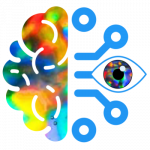July, 2023: Update
Lebt wohl, liebe Follower! @ViewsOnDrugsBot sagt adios. 😔 Leider wurde sein Twitter API-Zugang widerrufen, so dass der Bot vorerst inaktiv ist.
Dies war ein aufregendes Networking-Experiment, das uns von anderen Projekten auf der ganzen Welt wissen ließ und uns bei @MyBrainMyChoice dazu inspirierte, weiter an weiteren #HarmReduction, #DrugPolicy, & #DrugsAndGender Projekten mit dem Menschen im Mittelpunkt zu arbeiten.

2021 – 2023: MyBrainMyChoice Projekt
Global views on public health, human rights & research involving: #harmreduction, #drugpolicy & #psychedelicscience
– A project by Francisco ‚Pacho‘ Arcila and Philine Edbauer
Views on Drugs (@ViewsOnDrugsBot) is the #mybrainmychoice Twitter bot that automatically tweets scientific articles and retweets expert opinions on public health, human rights, and risk and harm reduction topics related to global drug research and policy. The bot is a fluid open source project in constant development:
A global distribution list
Through a carefully curated distribution list of Twitter accounts of international people and organizations, the bot selects tweets to retweet based on certain parameters defined in the code. For example, recent posts that include keywords such as ‘drug policy’ or ‘harm reduction’ are considered after applying some tweet quality filters. This is done based on the Twitter automation rules. Before their addition to the distribution list, individuals with personal accounts are contacted to obtain their authorization.
Additionally, the bot posts scientific articles from indexed journals included in PubMed searches.
A public code
Following open science guidelines, the bot’s code is hosted in a public GitHub repository. Any comment or suggestion can be made through a pull request, the creation of an issue or by contacting the author directly.
A project on knowledge reproduction
Our goal is to build a tool that is useful globally. Therefore, we try not to simply reproduce the global imbalance in the production and dissemination of knowledge, but to improve the code and the distribution list in a way that counteracts it. We will assess how well we succeed, and what lessons we can learn and share after a few months.
The developers
The bot started as a #mybrainmychoice project in January 2021 and has been conceptually developed since then.
Francisco Arcila grew up in Colombia in an environment influenced by the suffering and injustice caused by the war on drugs. Colombia has lived through a government-led anti-drug strategy that resulted in the death and disappearance of 6,402 innocent, low-income youth between the years 2002 and 2008, next to countless other human rights violations that are the direct consequence of the illegality of certain substances. Worldwide, scientific advances intrinsically related to different forms of suffering have been hampered. For these reasons, today, Francisco is involved in several projects aligned in favor of the legalization and regulation of all substances, as well as the destigmatization of users, whether with problematic patterns or not. After studying biology in Colombia and Germany, he now works as a data scientist at Leuphana University in Lüneburg.
Philine Edbauer, co-founder of #mybrainmychoice, is studying for a master’s degree in Area Studies at Humboldt University Berlin, as a part of which she is involved with the decolonization of knowledge production.
A warm thank you to Youth RISE for providing valuable feedback during the initial phase of development! Youth RISE is an internationally connected youth organization that advocates for harm reduction and human rights in drug policy. Also, many thanks to Amy Romanello from SSDP Berlin for her contribution.
Contact us
If you have questions or comments, do not hesitate to contact us.
Views on Drugs (@ViewsOnDrugsBot) es el Twitter bot de #mybrainmychoice que tuitea automáticamente artículos científicos y retuitea opiniones de expertos sobre temas de salud pública, derechos humanos y reducción de riesgos y daños relacionados con la investigación y política de drogas a nivel global. El bot es un proyecto fluido de código abierto en constante desarrollo:
Una lista de distribución global
A través de una lista de distribución cuidadosamente curada de cuentas de Twitter de personas y organizaciones internacionales, el bot selecciona tuits para retuitear según ciertos parámetros definidos en el código. Por ejemplo, se consideran las publicaciones recientes que incluyen palabras clave como ‘drugpolicy’ o ‘harm reduction’ después de aplicar unos filtros de calidad del tweet. Esto se hace en base a las reglas de automatización de Twitter. Para su adición a la lista de distribución los perfiles de cuentas personales son contactados previamente para obtener su autorización.
Adicionalmente el bot publica artículos científicos de revistas indexadas incluidas en las búsquedas de PubMed.
Un código abierto
Siguiendo los lineamientos de ciencia abierta, el código del bot está alojado en un repositorio público de GitHub. Cualquier comentario o sugerencia puede hacerse mediante un pull request, la creación de un issue o directamente contactando a los autores.
Un proyecto sobre la reproducción del conocimiento
Nuestro objetivo es hacer de este proyecto una herramienta útil globalmente. Por lo tanto, estamos intentando no reproducir simplemente el desequilibrio global de la producción y difusión del conocimiento; en su lugar nuestro propósito es el de mejorar el código y la lista de distribución de manera que lo contrarreste. Evaluaremos en qué medida lo conseguimos, y qué lecciones podemos extraer y compartir, al cabo de unos meses.
Los desarrolladores
El bot se convirtió en un proyecto de #mybrainmychoice en enero de 2021, y ha sido desarrollado conceptualmente desde entonces.
Francisco Arcila creció en Colombia en un entorno influenciado por el sufrimiento e injusticia provocados por la guerra contra las drogas. En gran parte, como consecuencia de la ilegalidad de las sustancias, Colombia ha vivido una guerra que además de incontables violaciones de los derechos humanos, es la causa directa de la muerte y desaparición, a manos del gobierno, de 6402 jóvenes inocentes de bajos recursos entre los años 2002 y 2008. Adicionalmente muchos avances científicos intrínsecamente relacionados con diferentes formas de sufrimiento se han visto obstaculizados. Por estas razones Francisco hoy está involucrado en varios proyectos alineados en pro de la legalización y regulación de todas las sustancias, así como por la desestigmatización de los usuarios, ya sea con patrones problemáticos o no. Tras estudiar biología en Colombia y Alemania, ahora trabaja como data scientist en Leuphana Universidad en Lüneburg.
Philine Edbauer, cofundadora de #mybrainmychoice, estudia una maestría en Area Studies en la Universidad Humboldt de Berlín, como parte de la cual se ocupa de la descolonización de la producción de conocimiento.
¡Queremos extender un caluroso agradecimiento a Youth RISE por proporcionar valiosos comentarios durante la fase inicial de desarrollo! Youth RISE es una organización juvenil conectada en todo el mundo que aboga por la reducción de riesgos y daños y los derechos humanos relacionados con la política de drogas.
Contactarnos
Si tienes preguntas o comentarios, no dudes en contactarnos.
Der #mybrainmychoice Twitter-Bot Views on Drugs (@ViewsOnDrugsBot) twittert automatisiert wissenschaftliche Artikel und retweetet Expert:innenmeinungen über öffentliche Gesundheit, Menschenrechte sowie Risiko- und Schadensminimierung aus der weltweiten Drogenforschung und ‑politik. Der Bot ist ein Open Source-Projekt, das kontinuierlich weiterentwickelt wird:
Eine globale Verteilerliste
Der Bot wählt anhand einer globalen, sorgfältig kuratierten Liste an Twitter-Accounts von Personen und Organisationen Tweets aus, die er auf der Grundlage bestimmter, im Code definierten Parameter retweetet. So werden beispielsweise aktuelle Beiträge, die Schlüsselwörter wie ‚Drug policy‘ oder ‚Harm Reduction‘ enthalten, nach der Anwendung von Tweet-Qualitätsfiltern berücksichtigt. Dies geschieht auf Grundlage der Twitter-Automatisierungsregeln. Nicht-öffentliche Personen werden zunächst nach ihrer Zustimmung gefragt, bevor ihre Accounts in die Verteilerliste aufgenommen werden.
Darüber hinaus postet der Bot wissenschaftliche Artikel aus Zeitschriften, die in der PubMed-Datenbank gelistet sind.
Ein öffentlicher Code
Den Open Science-Maßgaben entsprechend wird der Code des Bots in einem öffentlichen GitHub-Repository gehostet. Über ein Pull Request, die Erstellung eines Issues oder durch die direkte Kontaktaufnahme mit dem Autor können Kommentare abgegeben bzw. Vorschläge mitgeteilt werden.
Ein Projekt über Wissensreproduktion
Unser Ziel ist es, ein weltweit brauchbares Tool zu entwickeln. Daher versuchen wir, das globale Ungleichgewicht bei der Produktion und Verbreitung von Wissen nicht einfach nur zu reproduzieren, sondern den Code und die Verteilerliste dahingehend zu verbessern, dass sie dem entgegenwirken. Nach einigen Monaten werden wir beurteilen, wie gut uns das gelingt und welche Lehren wir daraus ziehen und weitergeben können.
Die Entwickler:innen
Der Bot ist seit Januar 2021 ein #mybrainmychoice-Projekt und wird seitdem konzeptionell weiterentwickelt.
Francisco Arcila wuchs in Kolumbien in einem Umfeld auf, das vom Leid und den Ungerechtigkeiten des Drogenkriegs geprägt war. Kolumbien hat eine staatliche Anti-Drogen-Strategie durchlebt, die zwischen 2002 und 2008 zum Tod und Verschwinden von 6.402 unschuldigen Jugendlichen aus armen Verhältnissen geführt hat; neben zahllosen weiteren Menschenrechtsverletzungen, die die direkte Folge der Illegalität bestimmter Substanzen sind. Auf der ganzen Welt wird wissenschaftlicher Fortschritt, der verschiedene Formen von Leid verringern kann, blockiert. Vor diesem Hintergrund beteiligt sich Francisco heute an mehreren Projekten, die sich auf die Legalisierung und Regulierung aller Substanzen sowie für die Entstigmatisierung von Konsumierenden mit und ohne problematische Konsummuster hinwirken. Nach seinem Biologiestudium in Kolumbien und Deutschland arbeitet er jetzt als Data Scientist an der Leuphana Universität in Lüneburg.
Philine Edbauer, Mitbegründerin von #mybrainmychoice, studiert an der Humboldt-Universtität zu Berlin Regionalwissenschaften im Master und beschäftigt sich in diesem Rahmen mit der Entkolonialisierung von Wissensproduktion.
Vielen lieben Dank an Youth RISE für das wertvolle Feedback in der Anfangsphase der Entwicklung! Youth RISE ist eine international vernetzte Jugendorganisation, die sich für Harm Reduction und Menschenrechte in der Drogenpolitik einsetzt.
Schreib uns
Wenn du Fragen oder Anmerkungen hast, freuen wir uns über deine Nachricht!



Kommentare sind geschlossen, aber Trackbacks und Pingbacks sind möglich.